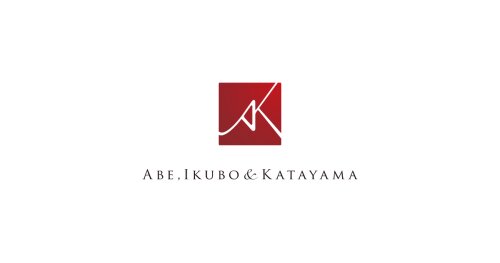Best Antitrust Lawyers in Tokyo
Share your needs with us, get contacted by law firms.
Free. Takes 2 min.
List of the best lawyers in Tokyo, Japan
About Antitrust Law in Tokyo, Japan
Antitrust law in Tokyo, Japan, is governed primarily by the Japanese Antimonopoly Act (AMA). This law seeks to maintain market competition by prohibiting unfair monopolization, price-fixing, business mergers that could reduce competition, and other business practices that could harm consumers and the economy. The Japan Fair Trade Commission (JFTC) is the main regulatory body overseeing the enforcement of these laws. Tokyo, as a major business hub, often becomes the focal point for antitrust investigations and enforcement.
Why You May Need a Lawyer
There are several common situations where you may require legal assistance with antitrust matters in Tokyo:
- Facing an investigation by the JFTC for possible antitrust violations.
- Involvement in business mergers or acquisitions that might reduce market competition.
- Suspecting that your business is a victim of unfair trade practices or monopolistic behavior.
- Negotiating or drafting business agreements to ensure compliance with antitrust laws.
- Defending against allegations of engaging in price-fixing, bid-rigging, or market division activities.
Local Laws Overview
Japanese Antitrust laws are designed to protect free and fair competition in the market. Key aspects include:
- Prohibition of private monopolization: Prevents entities from dominating a market through unfair practices.
- Regulations against unreasonable restraint of trade: Targets activities like cartels or collaborations that restrict competition.
- Ban on unfair trade practices: Covers things like predatory pricing and abuse of a dominant market position.
- Merger control: Requires entities planning to merge to obtain clearance from the JFTC, ensuring the merger does not reduce competition.
- Commitment decisions: Recently introduced, allowing suspected violators to propose solutions to restore competition without admitting wrongdoing.
Frequently Asked Questions
What activities can be considered a violation of the Antimonopoly Act in Japan?
Activities such as cartel formation, price-fixing, market allocation, bid-rigging, and abusing dominant market positions can violate the Act.
What is the role of the Japan Fair Trade Commission?
The JFTC enforces the Antimonopoly Act, conducting investigations, and taking action against enterprises violating antitrust laws in Japan.
How can a foreign company ensure compliance with Japan's Antitrust laws?
Engaging a local attorney knowledgeable in Japanese antitrust law for regular compliance reviews and audits can ensure that a foreign company adheres to local regulations.
What penalties can be imposed for violating antitrust laws in Japan?
Penalties include fines, orders to eliminate violations, and corrective measures. In severe cases, criminal charges might be brought against company executives.
Can businesses appeal against JFTC's decisions?
Yes, businesses can challenge JFTC decisions in the Tokyo District Court, followed by possible appeals in the higher courts.
What should a business do if it receives a JFTC investigation notice?
Seek legal counsel immediately to understand the scope of the investigation, respond accurately, and ensure compliance during the investigation process.
How are mergers and acquisitions assessed under Japanese antitrust laws?
The JFTC evaluates whether a merger or acquisition substantially restricts competition in any market within Japan, requiring pre-merger notification and possible clearance.
What is the leniency program in Japanese Antitrust law?
The leniency program allows participants of illegal cartels to self-report and fully cooperate with the JFTC in exchange for reduced fines or immunity.
Does Antitrust law apply to digital markets and e-commerce in Japan?
Yes, the Antimonopoly Act applies to digital markets, addressing issues such as monopolistic practices and unfair trade in digital and e-commerce sectors.
Are there any recent developments in Japanese Antitrust enforcement?
Recent developments include initiatives by the JFTC to address digital market competition, incorporate global standards, and refine the leniency program for better cooperation incentives.
Additional Resources
To navigate antitrust matters in Tokyo, here are several useful resources and organizations:
- Japan Fair Trade Commission (JFTC)
- Tokyo Bar Association - Provides referrals to specialized antitrust attorneys.
- American Chamber of Commerce in Japan - Offers insights for foreign businesses operating in Japan.
- Trade publications focusing on Asian market regulations.
Next Steps
If you need legal assistance in antitrust matters, consider the following steps:
- Identify a qualified attorney specializing in Japanese antitrust law.
- Gather all relevant documents, business agreements, and communications related to your concern.
- Schedule a consultation to discuss your situation, potential risks, and strategies for compliance or defense.
- Stay informed on Japanese antitrust laws and regulations to maintain compliance and avoid future issues.
Lawzana helps you find the best lawyers and law firms in Tokyo through a curated and pre-screened list of qualified legal professionals. Our platform offers rankings and detailed profiles of attorneys and law firms, allowing you to compare based on practice areas, including Antitrust, experience, and client feedback.
Each profile includes a description of the firm's areas of practice, client reviews, team members and partners, year of establishment, spoken languages, office locations, contact information, social media presence, and any published articles or resources. Most firms on our platform speak English and are experienced in both local and international legal matters.
Get a quote from top-rated law firms in Tokyo, Japan — quickly, securely, and without unnecessary hassle.
Disclaimer:
The information provided on this page is for general informational purposes only and does not constitute legal advice. While we strive to ensure the accuracy and relevance of the content, legal information may change over time, and interpretations of the law can vary. You should always consult with a qualified legal professional for advice specific to your situation.
We disclaim all liability for actions taken or not taken based on the content of this page. If you believe any information is incorrect or outdated, please contact us, and we will review and update it where appropriate.














